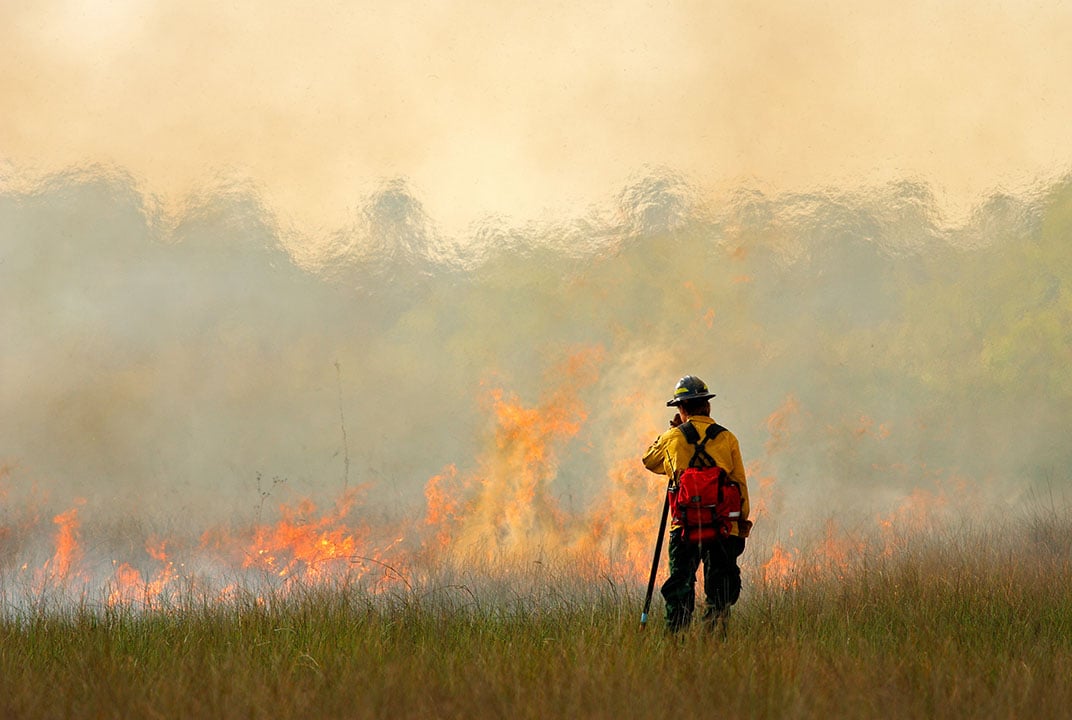Insight | How a simple call is changing lives in cyclone-hit Vanuatu
How a simple call is changing lives in cyclone-hit Vanuatu
Corporate
One of the first things that struck me even before our plane landed to join our other team on the tarmac in Vanuatu’s capital, Port Vila, was that every single person had been affected by Cyclone Pam in one way or another.
Just after our take-off from Brisbane airport, an airhostess originating from Vanuatu saw the Télécoms Sans Frontières (TSF) logos on our t-shirts and came over talk. She had read about TSF using Inmarsat IsatPhones for calling operations in Saturday’s local Daily Post.
Luckily, her family was unaffected but she spoke about the hundreds of families that had been cut off from one another, leaving them in the obscurity of not knowing – not knowing what had become of their family, not knowing how they would get by, not knowing what the following day would bring.
This mission in Vanuatu is the first time I have actively been involved in TSF’s calling operations. It soon became apparent that a simple satellite phone represents a tremendous lifeline to the survivors of natural disasters in some of the world’s most remote areas.
When our beneficiaries are handed the Inmarsat’s IsatPhone you notice a smile come across their face as you are offering them a chance that they could never have imagined.
The importance of a simple phone call
Many people made the most of their free call to phone friends and family in Port-Vila, Australia, New Caledonia, Papua New Guinea, Fiji, the Solomon Islands and New Zealand, as well as calls to foreign pastors, employers and government aid bodies.
As questionable as my knowledge of the local language (Bislama) is, some of its Anglophone derivatives proved fairly revealing in terms of understanding the object of the call.
I would say that a fair 90% of people use the call to ask for help they so desperately need, be it material help from loved ones in the capital or financial assistance from friends working abroad.
Then from time to time, there are tears. Sometimes tears of joy but sometimes through the joy we can forget the impact of the typhoon. When they are not tears of joy, the reality of the situation tends to hit home.
In touch for the first time in weeks
One particular case that is anchored into my memory is that of Marie, a lady of around 50 years residing in Nazaret, North Tanna, whose 23 year old son was studying in Port-Vila.
She was delighted when the call went through; indeed, it was the first time Marie was able to speak to her little boy in three weeks. However, as my team and I observed her call we noticed a swift change in her reactions, as the initial smile dropped into painful tears.
Marie explained to us later on that her son had been hit by corrugated roofing during the storm; the thick metal had torn through his thigh, leading to infection and then emergency amputation. As any mother would do, Marie took a boat the next day to join her son in Port-Vila.
Vital lifeline for vulnerable societies
Beyond our direct assistance amongst the population, the government agencies, Chief Information Officer, the Office of the Prime Minister, NGOs, and United Nations agencies have all been extremely thankful of the Inmarsat satellite connectivity that TSF has provided, pointing out that it has facilitated their work, notably their assessments, their food distributions and simple day-to-day coordination throughout the country.
My time in Vanuatu has confirmed my belief and TSF’s conviction that communications provide a vital lifeline to the world’s most vulnerable societies.
It is thanks to Inmarsat that we able to offer this. So it goes without saying that when our pick-up truck broke down in the thick of the Vanuatu jungle, the first thing we reached for was one of our IsatPhones…
Inmarsat supports TSF, the only NGO to specialise in emergency telecommunications, with free airtime and financial aid to restore communications after disasters and co-ordinate relief efforts by first responders.
About the author
Alexander James Thomas joined Télécoms Sans Frontières’ Headquarters in France back in 2013 as the Head of the International Relations and Communications Department, following studies focussing on French psycho and sociolinguistics at the University of Manchester. Since this time, he has been responsible for building on relations between TSF and its corporate supporters such as Inmarsat, as well as ties with the United Nations and the European Commission.
Alexander is often deployed to humanitarian crises, present on the Syrian border and the Philippines in 2014 and Vanuatu in 2015.
Outside of his day job, Alexander is Chairman of the South-West France Symphony Orchestra, and as a keen musician plays in several ensembles and sits on their administrative boards.


